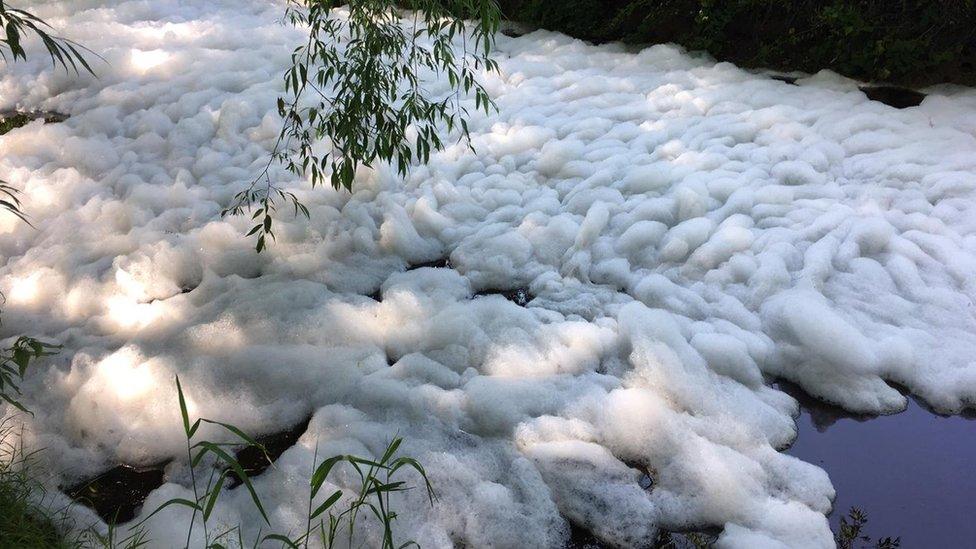Cambridge giant poo models highlight river pollution
- Published
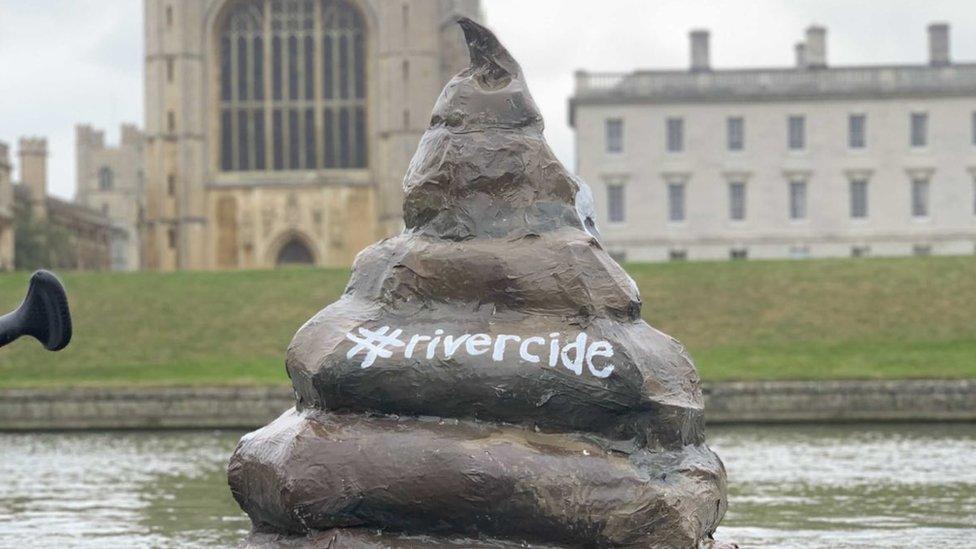
A group of climate activists placed giant models of poo emojis on the River Cam in Cambridges
Giant models of poo emojis have been floated along a city centre river to raise awareness about water pollution.
Little Blue Dot, a group of climate activists, organised the event in Cambridge, dubbed "Sewage Saturday", to highlight the amount of untreated human waste being pumped into waterways.
The models were placed in the River Cam near Jesus Green.
Claire Preston from the group said sewage in rivers was part of a "much bigger problem".
"We live is a system that says it's OK to put excrement into rivers, to fill the soil with our rubbish, the seas with plastic and the atmosphere with carbon dioxide," she said.
"But we've reached breaking point - we must change or face the collapse of our eco-system."
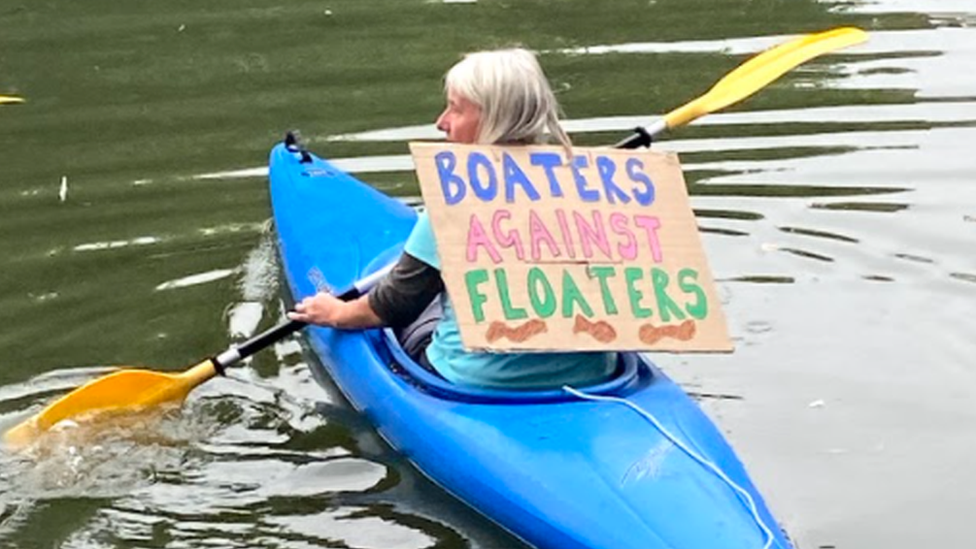
The group said it wanted to raise awareness of the "dysfunctional relationship with nature"
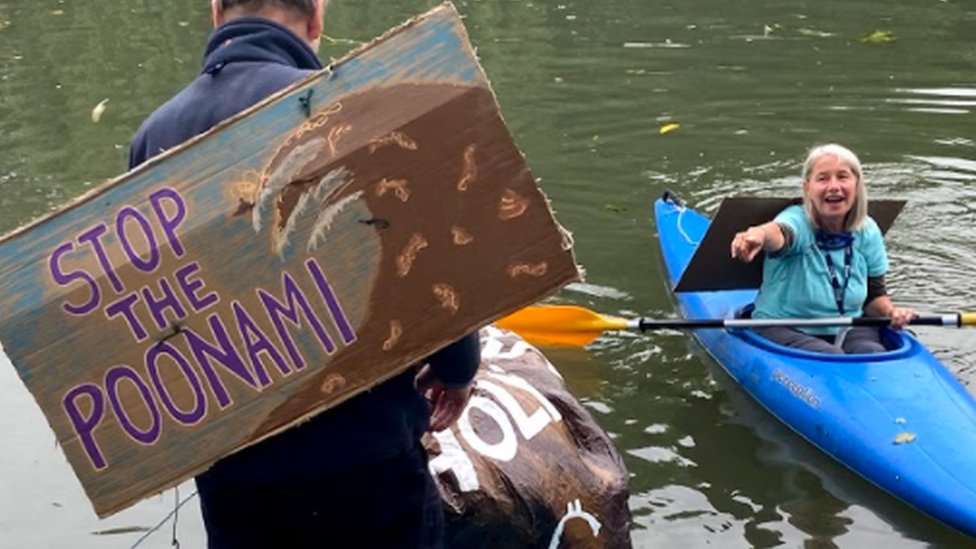
The activists said people in the area looked on "in a mix of shock and amusement"
Environment Agency (EA) figures suggest the number of serious water pollution incidents rose by almost a quarter in the year to March 2021 compared with the previous year.
Reported pollution is given a category from one to four based on how damaging it is to the environment - one being the most serious.
A category one incident has a "major effect" on either water quality, human health, conservation or businesses, while category two has a "significant effect".
BBC analysis of EA data showed that 325 category one and two serious water pollution incidents were recorded in the year to March 2021, up 23% on the year to March 2020.
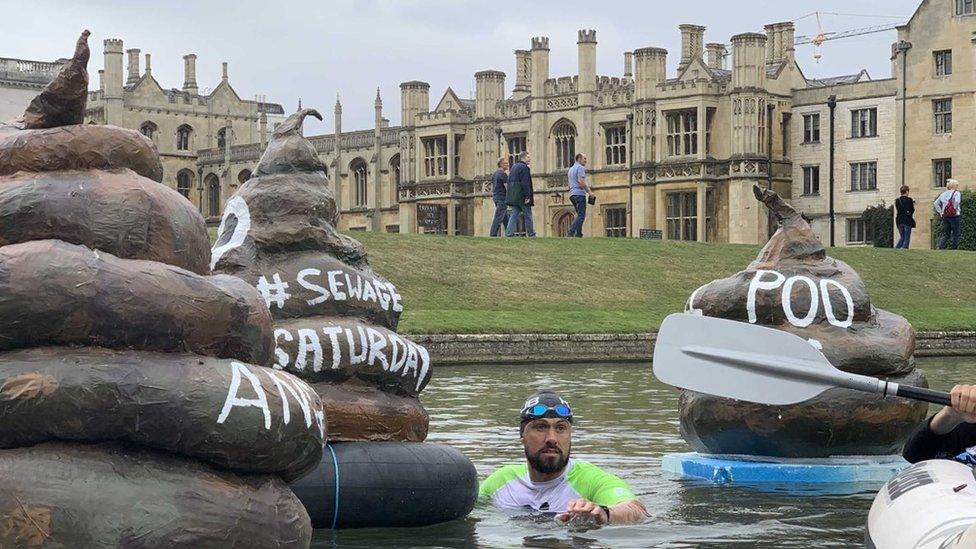
The largest of the poo models was over 1m (3.3ft) tall
Little Blue Dot, which is based in Cambridge, said: "The dumping of sewage locally is particularly destructive because it is polluting what should be crystal-clear chalk streams.
"There are only 200 chalk streams in the world, and 85% of them are in the UK. That makes us custodians of a very rare eco-system."
Al Dixon from the group said: "Our priority must be keeping our waterways clean and abundant with aquatic life."
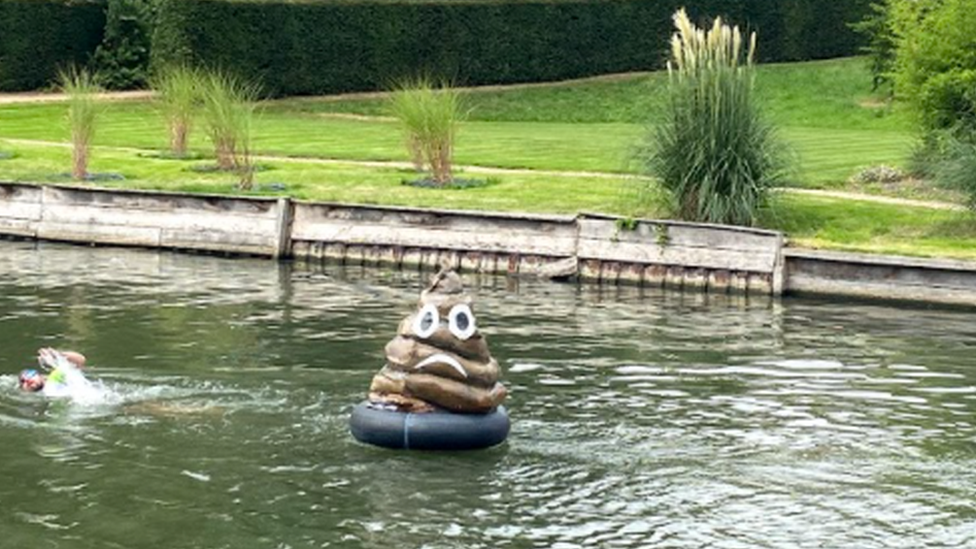
The group said it was "plotting" what to do next with the poo models

Find BBC News: East of England on Facebook, external, Instagram, external and Twitter, external. If you have a story suggestion email eastofenglandnews@bbc.co.uk, external
- Published13 July 2021
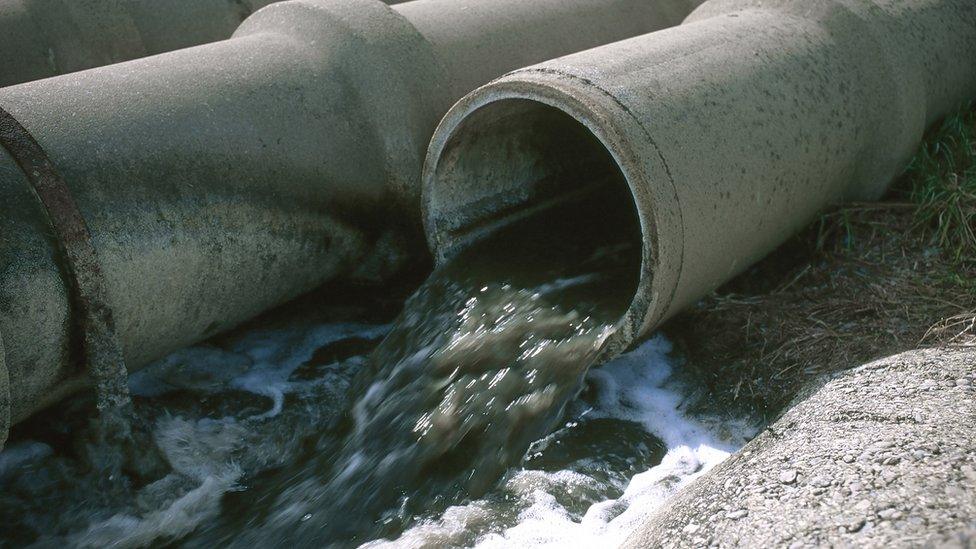
- Published9 July 2021
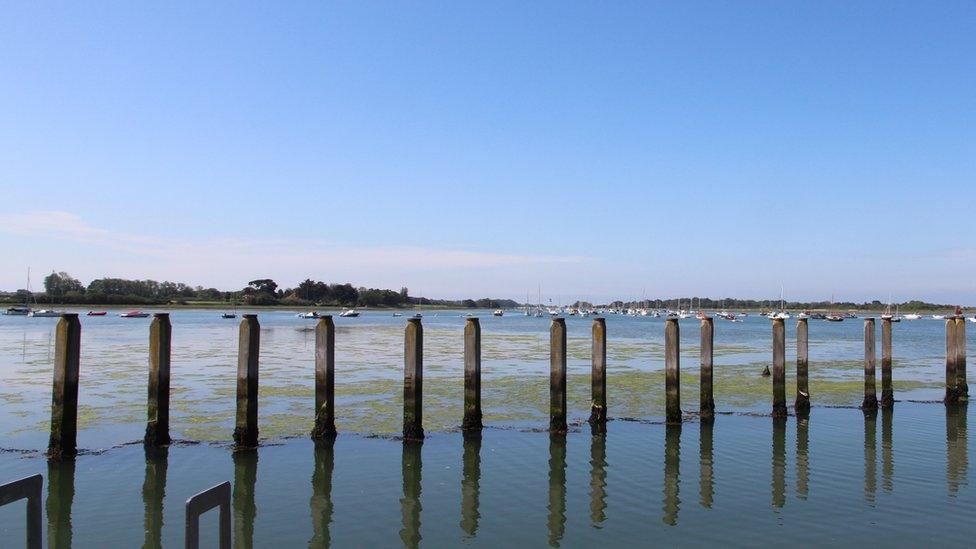
- Published6 July 2018
